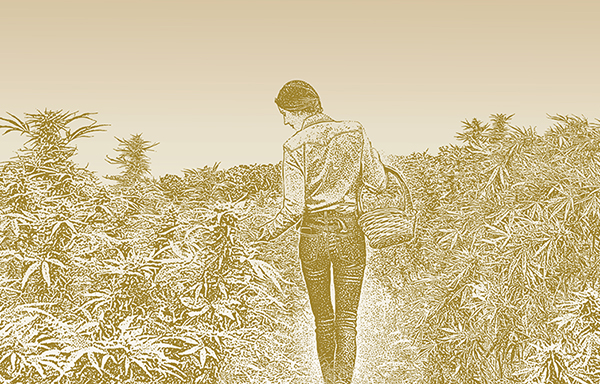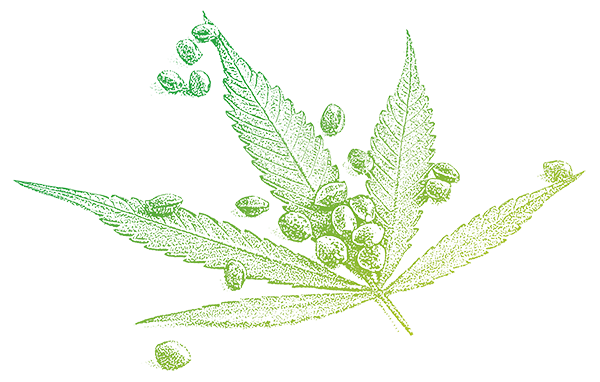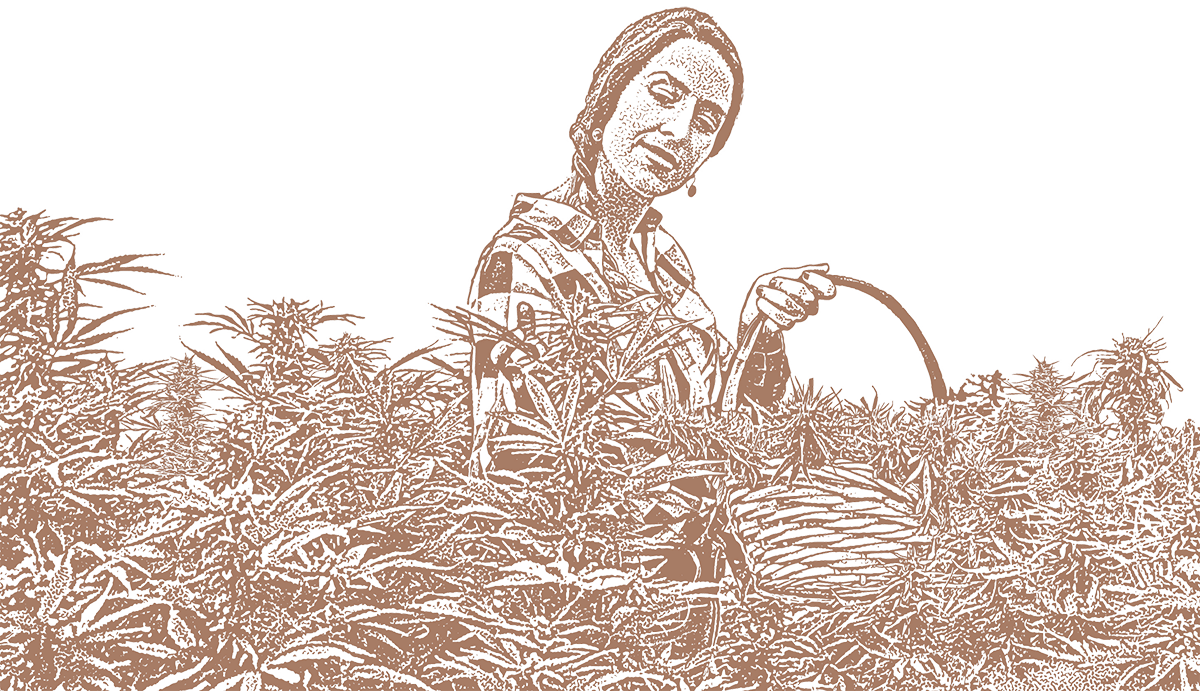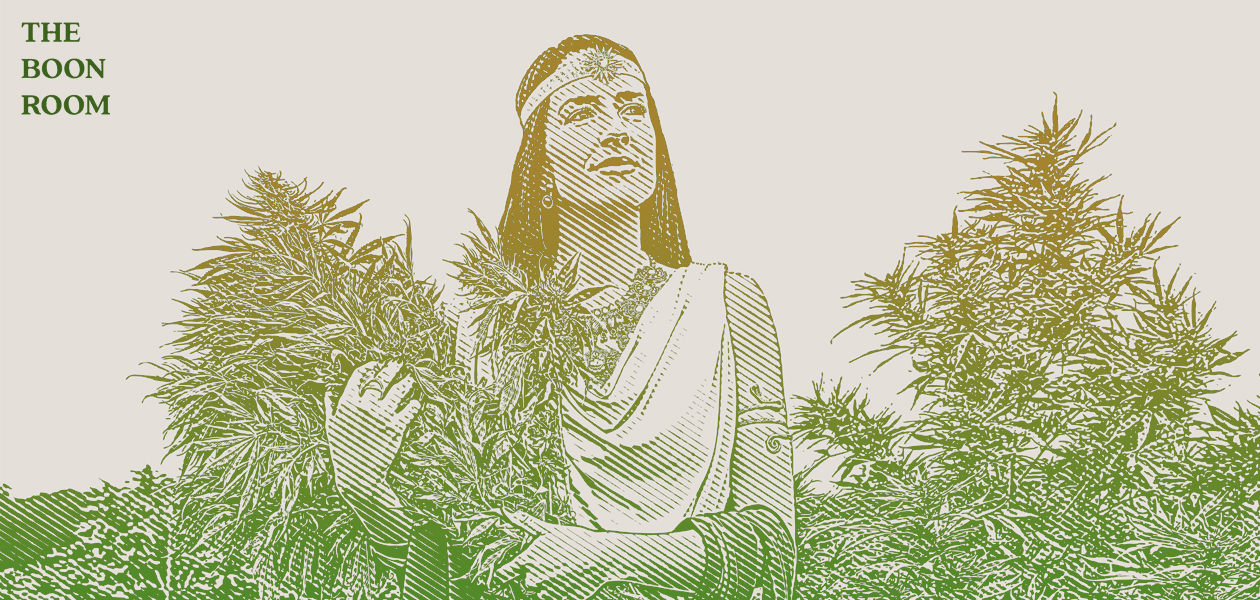What You Will Learn on this Page
Hemp Is a Highly Sustainable and Significantly Controversial Crop for Many Reasons
Conversations about the hemp plant have taken off in recent years as newly relaxed legislation surrounding this long-vilified plant has enabled farmers to start growing it again. While this opens many doors for lucrative agricultural production thanks to the many potential applications of hemp plants, long-standing misconceptions about hemp (and the frequent conflation of hemp with its sister plant, marijuana) have created many contentious debates about hemp and its place in the modern world economy.
While the differences between hemp and its psychoactive sister plant marijuana are clearly defined, the current ethical debates surrounding the hemp plant pertain to how the growing popularity of hemp crops could influence agricultural practices and affect the environment. Additionally, it’s vital for agricultural professionals and legislators to make responsible and sustainable choices for the environment. In this regard, hemp could hold fantastic potential but, like any other lucrative crop, there is potential for hemp farming to become exploitative or harmful to the Earth as more farmers attempt to cash in on this wildly popular crop.

Growing Popularity Could Lead to Irresponsible or Dangerous Farming Practices

One of the most beneficial aspects of hemp is the fact that farming it responsibly can provide substantial benefits to the environment and help preserve the land on which it is grown. However, sustainable farming practices require consistent effort, careful attention to detail, adherence to applicable laws, and a genuine desire to cultivate hemp legally and responsibly. As hemp grows in popularity, this trend is sure to attract those unwilling to adhere to ethical farming practices in pursuit of profit.
When grown correctly with responsible farming practices, hemp crops provide fantastic environmental benefits and may even encourage healthier growth for other crops grown in or around the hemp. However, farmers turning to dangerous herbicides to clear land for hemp cultivation or using lethal insecticides to protect their cash flow could be harming the environment in untold ways in addition to producing subpar product.
Booming Hemp Popularity Could Enable Fraudsters
Another current problem in the blossoming hemp growing industry is seed fraud, a practice that has cost many hopeful hemp cultivators tremendous amounts of money over the last several years. Since hemp and marijuana are different strains of the same plant, their seeds share many common characteristics. Genetics is a crucial concern for any hemp farmer who wishes to not only grow hemp responsibly but also turn a profit; feminized hemp seeds are a necessity for the hemp crop to grow correctly.
Farmers attempting to cultivate hemp to sell as raw material for cannabidiol (CBD) manufacturing must grow female plants; the pollen produced by male plants inhibits CBD production and results in very low CBD concentration. Fraudsters duping unwary farmers into buying male seeds or improperly feminized seeds can make millions of dollars very quickly before disappearing. True feminized hemp seeds can cost $1 to $2 per seed, and seed fraud has developed into an unsavory cottage industry costing hopeful farmers astronomical amounts of money.
Farmers who have fallen victim to seed fraud schemes hope that impending United States Department of Agriculture (USDA) legislation will lead to proper oversight over the burgeoning hemp cultivation industry and the seed trade upon which it relies. Seed purveyors must use responsible genetic engineering processes to ensure high-quality hemp seeds that will produce high-quality hemp, especially for growers selling to the CBD product manufacturing industry.

The Connection Between Hemp and Ethics
Irresponsible farming practices and seed fraud aside, ethics debates concerning hemp continue throughout the United States as the CBD industry gains traction and more farmers turn to hemp as a potentially lucrative crop. The United States population has grown increasingly environmentally conscious over the last few decades. More consumers than ever before are concerned with supporting businesses that engage in environmentally responsible practices, give back to their communities in meaningful ways, and contribute toward sustainable initiatives. Beyond simply “doing the right thing,” there is clear incentive for modern companies to adhere to environmentally conscious and socially responsible practices.

Part of the reason hemp has grown to such astronomical popularity is the wide variety of applications it offers. As legislation surrounding medical marijuana and consumer-grade CBD products has relaxed over recent years, many Americans are turning to CBD-based treatments for common ailments like anxiety and joint pain. CBD is a natural anti-inflammatory treatment, and many attest to CBD’s potential ability to replace dangerous opioids for the treatment of conditions that cause chronic pain and discomfort as a non-addictive alternative. Hemp is the raw material for CBD production, leading to many farmers seeking high-quality seeds to grow hemp with high CBD content.
One of the best qualities of hemp from a sustainability perspective is the ability to use every part of the plant. Hemp fibers are some of the strongest natural fibers and can be reliable ingredients for the production of composite materials. Aside from CBD production, hemp also contributes to petrochemical manufacturing and hemp cultivation is surprisingly fast without damaging the environment. To fully take advantage of the incredible potential of hemp for various industries and consumer-level applications, sustainable and ethical cultivation practices are necessities.
Hemp and Sustainability

When it comes to sustainable farming, hemp is one of the most incredible crops grown in the United States. Ethical cultivation of hemp and more extensive oversight of the hemp industry could allow American farmers and hemp-based product manufacturers to not only increase their profits but also generate a truly sustainable industry that empowers many others.
Hemp Absorbs High Levels of Carbon Dioxide
Like many other plants, hemp absorbs carbon dioxide (CO2). Hemp actually absorbs more CO2 from the air than most trees. For every metric ton of hemp cultivated, the plants remove about 1.63 metric tons of carbon from the air.
Hemp Can Help Rejuvenate Damaged Soil
Hemp roots help to regenerate soil. When it comes to industrial-level farming practices, soil regeneration is a consistent concern. Over-farming can damage soil to the point where nothing will grow in it again without extensive treatment that can take years. Hemp is bountiful in nutrients that rejuvenate soil. As hemp plant matter falls off of growing plants to the ground, this matter decomposes and enriches the soil, effectively replacing most of the nutrients the plant itself uses to grow and keeping soil healthy for longer. After harvesting, leftover scraps of the hemp plants further enrich the soil to enable a stronger growing season the following year.
Hemp Grows Incredibly Fast
The fast growth of the hemp plant further increases its sustainability. A hemp plant can reach full growth within just four months of planting, making it an ideal rotation crop with fantastic environmental benefits. Each hemp harvest enriches the soil for future planting and helps maintain healthy soil.
Hemp Requires No Chemical Treatments
The use of pesticides and herbicides in industrial farming has been a heated ethical debate for decades, which is yet another reason why hemp is one of the most sustainable and ethical crops any farmer can grow. Hemp plants require no pesticide or herbicide treatment; these plants grow incredibly strong without dangerous chemical treatments that can cause health problems in human consumers and damage the ecosystem surrounding the growth site.
Hemp Roots May Help Prevent Costly Soil Erosion
The root systems of hemp plants also help prevent soil erosion. A typical hemp plant can grow incredibly strong roots up to nine feet deep. These roots can help hold soil together and prevent strong rains from washing it away, a common problem for farmers all over the country. In fact, hemp roots have even proven to restore soil that had been previously overworked and damaged.
Hemp Requires Little Water
Hemp cultivation could also help to curb water consumption for industrial farming. Unlike other fibrous plants like flax and cotton, hemp requires very little water and can self-irrigate.
Hemp Is a Waste-Free Crop
Hemp produces virtually no waste. There is no part of the hemp plant that does not offer some kind of functional use, and any plant matter remaining after a harvest will enrich the soil for future planting. Tens of thousands of products use hemp as raw materials, from healthy food products to CBD-based medications and products to ingredients for incredibly strong composite materials.

Hemp Offers Surprising Toxic Metal Absorption Properties
Hemp has an astounding ability to safely absorb toxic metals. Two of the most well-known uses of the hemp plant for this purpose include the cleanup following the Chernobyl disaster and the Fukushima meltdown of 2011. After the Chernobyl incident, hemp plants helped to remove toxic cesium and strontium from the earth and the plant helped to absorb radiation from the area affected by the Fukushima disaster.
Hemp Plants Offer Protection to Wildlife
An often-overlooked benefit of hemp plants is the size of the plants offer great protection or many types of wildlife. In fact, a recent study published by the University of Colorado indicates that hemp crops could help the dwindling honeybee populations by providing these vital insects with much-needed pollen sources. Honeybees are responsible for pollinating countless other crops on which human beings rely, and their declining populations has been a major concern for environmental researchers over the last several years.
Hemp Could Cut Our Dependence Upon Logging for Paper
Hemp could eventually replace trees as a source of paper. Hemp fibers can easily produce high-quality papers, and deforestation continues to be a pressing issue all over the world. With time, hemp crops could potentially provide the natural fibers needed to meet the world’s demand for paper and prevent further deforestation.
These are just a few of the most sustainable aspects of the hemp plant when it comes to commercial farming. Few other crops offer the incredible range of applications in addition to the numerous practical and environmental benefits of hemp. When it comes to ethical agricultural options, hemp is one of the most promising crops known to mankind.

Potential Implications of the Hemp Industry in the Future
Environmental ethics is a philosophical discipline concerned with the relationship between human beings and the planet. This side of philosophy discusses the moral implications of how human beings interact with the world and begs the question of whether humans have a moral responsibility to safeguard the planet and to use its resources responsibly. The American public has undoubtedly cultivated a strong sense of environmental responsibility, and new initiatives to protect the Earth have appeared over recent years.
As far as hemp is concerned, most of the debate surrounding its status as a viable cash crop continue to vacillate due to the plant’s frequent conflation with its sister plant marijuana. However, this ongoing conflation is dwindling as public officials and legislators gain greater understanding between the different strains of the cannabis plant and their applications. The distinction between hemp and marijuana is growing more defined, but members of the hemp industry worry for the future when it comes ethical practices within the industry and the sustainability of commercial hemp cultivation.
Hemp Holds Undeniable Potential to Empower a More Sustainable Agriculture Industry

It would not be too far-fetched to believe that the hemp industry could eventually reshape the agriculture industry as a whole. Commercial farmers may start cultivating hemp to not only increase their revenue but also to take advantage of the environmental benefits hemp could offer their businesses. Hemp could eventually become a side crop for farmers focused on other crops, such as corn, soybeans, wheat, and beans. Hemp could not only supplement the income of these farmers, but rotating hemp through their fields year after year would also potentially increase soil longevity, support the strong growth of their other crops, and empower a more sustainable type of agriculture with undeniable benefits.
While countless ethical discussions concerning commercial agriculture, the environment, and humanity’s position as the responsible caretakers of the Earth continue, it’s vital to consider the vast number of useful applications hemp supports and the ability of this incredible plant to not only offer a more sustainable form of agriculture but also supplement the growth of the many other crops on which human beings rely. Legislation throughout the United States continues to evolve as new ethical concerns surrounding the commercial hemp industry come to light, so hopefully more effective oversight and greater public awareness of the potential of hemp crops will spur effective new laws that encourage the growth of an effective and environmentally responsible hemp industry.

The Boon Room is more than a website, brand or service. It’s an idea. It’s a project. It’s a mission. It’s a coming together of companies, investors, cultivators, manufacturers, distributors, retailers and inspired entrepreneurs who believe businesses need to look for ways to invest in sustainablity.


